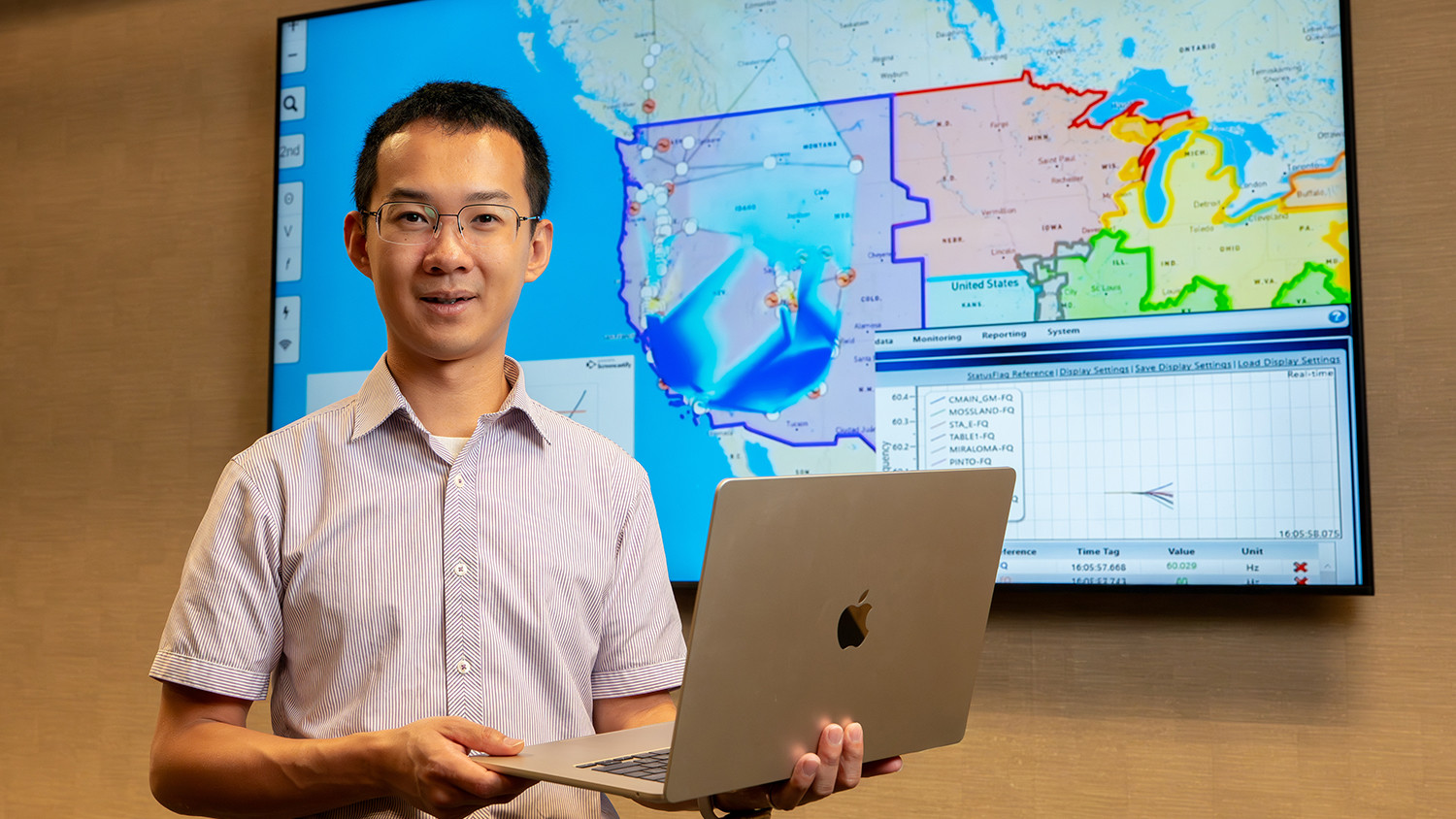
Hantao Cui Selected as a National Academy Gulf Research Program Early Career Fellow
Congratulations to #NCStateECE Associate Professor Hantao Cui on being named a National Academies Gulf Research Program early-career Research Fellow!
October 29, 2025 ![]() Giada Cavaliere
Giada Cavaliere
Hantao Cui, associate professor in the Department of Electrical and Computer Engineering at NC State, has been selected as a National Academies Gulf Research Program early-career Research Fellow. The fellowship recognizes emerging leaders whose work advances offshore energy safety, environmental protection and community resilience in the Gulf region.
Cui is a faculty member in the Future Renewable Electric Energy Delivery and Management (FREEDM) Systems Center, where his research brings advanced computation into day-to-day energy operations. His research group, the Power CyberInfrastructure Lab (PowerCI), builds digital twins of coastal and offshore energy systems that mirror real conditions. These models enable utilities and operators to test “what-if” scenarios, evaluate controls and anticipate failures before they impact people or the environment. The goal is straightforward: safer systems and more reliable power for communities.
Although the Gulf currently has no offshore wind farms, its existing energy infrastructure remains complex and exposed to severe weather. Cui’s work focuses on community power system reliability and distributed energy resources, such as local solar and battery storage. By integrating these resources with existing coastal infrastructure, his team aims to keep critical services available during grid disturbances, and to reduce recovery time after storms.
“This recognition allows me to advance digital twin technologies that can model and predict how complex energy systems in the Gulf operate under real conditions,” said Cui. “By identifying potential risks early, we can design safer and more resilient energy infrastructure for the region.”
Cui’s laboratory has a track record of translating research into usable tools. He leads the development of high-fidelity simulation software used by researchers and practitioners to study stability, protection and control across many time scales. Building on that foundation, this fellowship will support new capabilities that link real measurements with physics-based models, enabling faster detection of anomalies and more precise operational decisions.
Community partnership is central to this effort. Cui plans to collaborate with local governments, utilities and community organizations to co-design practical solutions. Pilot projects will emphasize reliable electricity for essential services, while reducing dependence on diesel generation during emergencies. The team will also explore training and workforce development so students and local engineers can apply modern modeling and control methods in the field.
“At its heart, this work is about people,” Cui said. “I want to collaborate with Gulf communities to strengthen local energy resilience – helping families, schools and small businesses access cleaner, more reliable power.”
Cui notes that reliable, clean energy is not an abstract target for the Gulf; it is a public safety issue and an economic one. More reliable community power systems protect vulnerable residents, reduce outage costs and support local businesses. Cleaner operation can also lower emissions and improve air quality in communities that often face cumulative environmental burdens.
The fellowship provides a two-year support to advance these goals. With it, Cui’s team will expand partnerships, validate models against field data, and share open, reproducible tools that other researchers and practitioners can adopt. The work aligns with NC State’s strengths in power systems, resilient infrastructure and public-impact research.
About the National Academies Gulf Research Program
The Gulf Research Program of the National Academies of Sciences, Engineering, and Medicine was established in 2013 with funds from the Deepwater Horizon legal settlements. Its mission is to advance science, engineering and health knowledge to enhance offshore energy safety, protect the environment and strengthen the resilience of coastal communities in the Gulf region.
